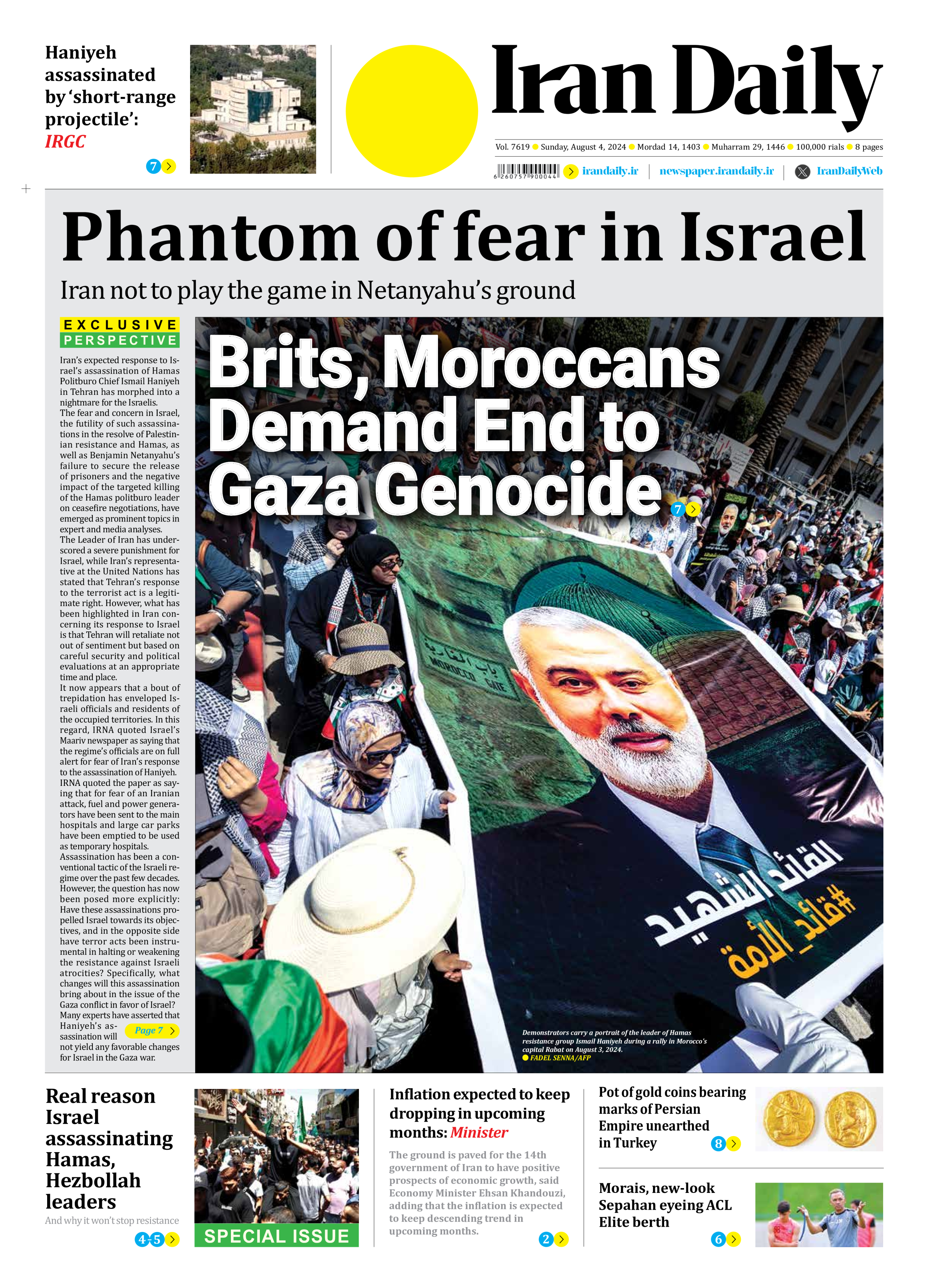
Phantom of fear in Israel
Iran not to play the game in Netanyahu’s ground
Iran’s expected response to Israel’s assassination of Hamas Politburo Chief Ismail Haniyeh in Tehran has morphed into a nightmare for the Israelis.
The fear and concern in Israel, the futility of such assassinations in the resolve of Palestinian resistance and Hamas, as well as Benjamin Netanyahu’s failure to secure the release of prisoners and the negative impact of the targeted killing of the Hamas politburo leader on ceasefire negotiations, have emerged as prominent topics in expert and media analyses.
The Leader of Iran has underscored a severe punishment for Israel, while Iran’s representative at the United Nations has stated that Tehran’s response to the terrorist act is a legitimate right. However, what has been highlighted in Iran concerning its response to Israel is that Tehran will retaliate not out of sentiment but based on careful security and political evaluations at an appropriate time and place.
It now appears that a bout of trepidation has enveloped Israeli officials and residents of the occupied territories. In this regard, IRNA quoted Israel’s Maariv newspaper as saying that the regime’s officials are on full alert for fear of Iran’s response to the assassination of Haniyeh.
IRNA quoted the paper as saying that for fear of an Iranian attack, fuel and power generators have been sent to the main hospitals and large car parks have been emptied to be used as temporary hospitals.
Assassination has been a conventional tactic of the Israeli regime over the past few decades. However, the question has now been posed more explicitly: Have these assassinations propelled Israel towards its objectives, and in the opposite side have terror acts been instrumental in halting or weakening the resistance against Israeli atrocities? Specifically, what changes will this assassination bring about in the issue of the Gaza conflict in favor of Israel?
Many experts have asserted that Haniyeh’s assassination will not yield any favorable changes for Israel in the Gaza war.
Page 7







